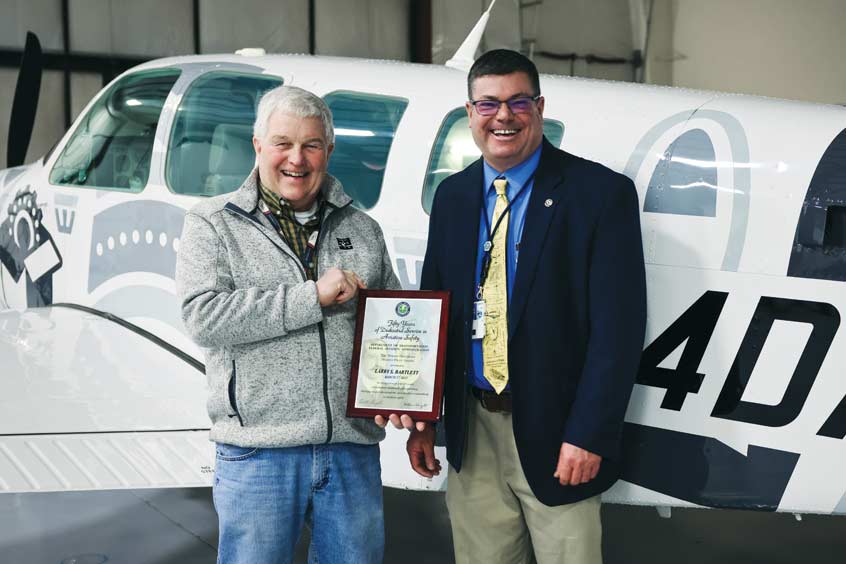Why visit ACE ’25?

Duncan Aviation senior captain Larry Bartlett has been awarded the FAA's Wright Brothers Master Pilot Award. The award honours pilots who hold a US Federal Aviation Administration pilot certificate, have 50 or more years of civil and military piloting experience, are US citizens and have not had any airman certification revoked.
The Wright Brothers Master Pilot Award recognises individuals who have exhibited professionalism, skill and aviation expertise for at least 50 years while piloting aircraft as 'Master Pilots'.
Bartlett attributes the win to his perseverance over the years: “I've attended FlightSafety for aircraft initial or recurrent pilot training over 60 times. I've also taken roughly 160 FAA Part 135 check rides to stay current to fly air taxi (charter) over the years.”
Flight department manager Craig Rathjen described Bartlett as a very skilled and knowledgeable pilot with a broad level of experience in aviation: “Larry has a great love for aviation and is always willing to pass on knowledge to other pilots. He is very deserving of this award. He has had a great career in aviation and has taught and helped many pilots along the way.”
Bartlett's story starts in Gothenburg, Nebraska, where he was born in March 1951. He was raised on the family farm near Cozad airport, and as a young boy would climb to the top of the windmill and watch aircraft come and go.
His interest in aviation became evident in high school when he wrote his senior paper about the agricultural aviation he had witnessed from his perch on that windmill. Bartlett left the farm and moved to Lincoln to go to the University of Nebraska where he discovered skydiving, which is a passion of his even to this day.
His actual flying started in the autumn of 1971 when he took lessons in Gothenburg, and his first solo at a stunning eight hours of flying time occurred in December of that year. By the time of that solo flight, he had more than 580 skydives. Bartlett earned his private pilot's certificate later the same month with 39.1 hours.
By January 1972, with 50 hours of total time (TT), Bartlett was checked out in a Cessna 182. He never looked back at the Cherokee 140 that he had soloed in, and got his licence in, just one month before.
In June of that year, Bartlett earned his commercial pilot's certificate with 188 hours TT, and his first paid flight was carrying agricultural chemicals from Salina, Kansas to Gothenburg. With 290 hours TT and having earned his instrument certificate in October, Bartlett could legally fly in the clouds.
He continued to fly commercially for Gothenburg Aviation in a Cessna 182 and a Cherokee 6 while becoming a certified flight instructor instrument (CFII) around April 1973. In the June that year, Bartlett started flying a Pawnee, spraying fields and honing his low altitude flying skills.
In 1980, with five years and more than 2,000 hours of flying with Gothenburg Aviation, he was offered his dream job of flying multi-engine charters in a Cessna 310 out of Scottsbluff and Alliance, Nebraska. Bartlett earned his multi-engine and air transport pilot ratings while in Scottsbluff.
In 1982 after a couple of years working out of western Nebraska, he started working as chief flight instructor for Duncan Aviation's flight school, known as Lincoln Aviation Institute. Duncan Aviation closed the flight school in 1985, and Bartlett became the chief pilot for Duncan Aviation's flight department.
Bartlett joins chairman emeritus Robert Duncan, previous Duncan Aviation pilot David Moll and the late, long time team member Harry Barr as Wright Brothers Master Pilot Award recipients with Duncan Aviation backgrounds.